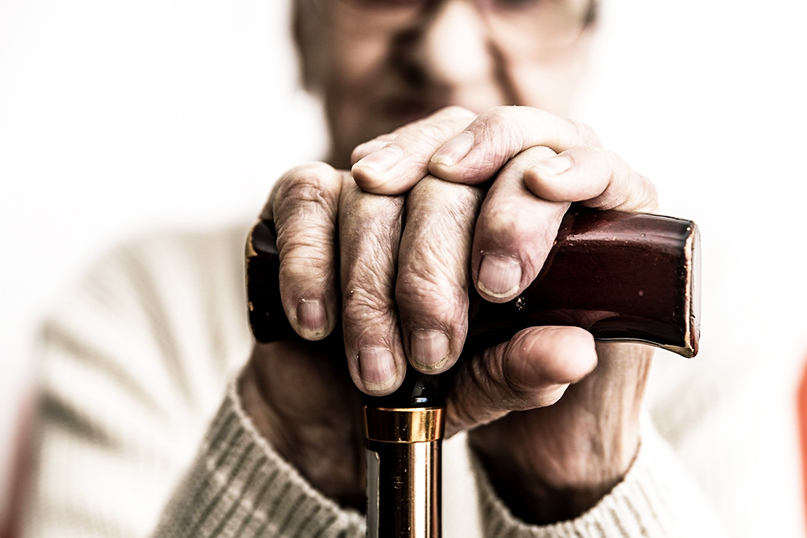
By Anne Hughes
Recognizing isolation is a primary risk factor for abuse among elders, it is important to note the heightened emotional state that the pandemic created, causing an even greater threat for seniors.
Perpetrators, all too frequently disguised as trusted loved ones, and numerous others using the internet, phones, USPS, and electronic devices to engage isolated seniors for exploitation, theft and abuse have been successful in their quest to take unfair advantage of older adults. The very same safety measures put in place to protect the vulnerable have also placed them at greater risk. Restrictions on visitations, quarantines and isolation have left many older adults with no one to talk to, eat with, listen to, engage with, laugh with when happy or cry with when sad. Electronic devices have become life connectivity.
As human beings, we are hard-wired for social engagement. Research shows that under electronic imaging, the brain responds differently when another person is in proximity and engages us. Our brains do not respond quite the same when looking at televisions, electronic devices or listening on a telephone, yet for many they have become the default for in-person engagement. Nine months ago, older adults were at senior centers, religious services, and group outings doing weekly errands and engaging in regular recreational activities. Now, most have been restricted for months in isolation, relying on delivery services and virtual appointments with limited contact with others.
As a result, we are witnessing cognitive decline, weight loss, lack of appetite, diminished mobility, and cases of depression in elders. Even long-term care settings have experienced a reduction of social contact, activities, visitations, and a noticeable change in residents’ physiological, cognitive, and emotional health. This pandemic has exposed cracks in our social systems and accessibility for elders in society, leaving them more vulnerable than ever to abuse.
The top three risk factors for elder abuse victims are social isolation, proximity to abuser (trusted family/household member facing substance or financial problems) or mild cognitive impairment.
What can we do?
Creativity:
Communities have initiated “Senior to Senior” postcards and letter-writing, operationalizing a community “Letters Against Isolation” initiative, matching willing members to write, as seen during WWII with writing to soldiers, known or unknown to the writer offering a sense of purpose and supporting social engagement.
Some communities have formed a phone tree and reach out with regular “check-in” calls to homebound elders. Facilitate Zoom or FaceTime visits, or neighborly check-ins from driveway, yard or curbside.
Some communities have placed notes in grocery bags, coordinated with local grocery services, or provided by Meals-on-Wheels or social service agencies. Expand ‘Secondary Caregiver’ model to nursing homes and assisted living facilities and become a certified non-medical volunteer.
Finally, remember we are morally responsible to report suspected abuse. If we think an elder is being abused or at risk… Speak up and report it! Abuse thrives on silence.
Resources:
AARP Fraud Watch Network Helpline:
877-908-3360
Center for Elder Abuse Helpline:
203-396-1097
CT Protective Services for Elderly (to report): 1-888-385-4225, After Hours: 2-1-1
www.ct.gov/dss/protectiveservicesforelderly
Connecticut COVID-19 Response website: https://portal.ct.gov/coronavirus
Connecticut “DO NOT CALL” List:
1-888-382-1222
Volunteer to Support Your Community: https://portal.ct.gov/Coronavirus/Information-For/Volunteers
Anne Hughes, LMSW, Institute on Aging, Jewish Senior Services in Bridgeport, has served as state representative for the 135th district since being elected in 2018. She served as a member on the Aging, Human Services, and Insurance and Real Estate Committees in the 2019 legislative session. Hughes has also worked as a licensed master social worker for Jewish Senior Services’ Institute on Aging and for the Center for Elder Abuse Prevention.
Readers are invited to submit original work on a topic of their choosing to Kolot. Submissions should be sent to judiej@jewishledger.com.









 Southern New England Jewish Ledger
Southern New England Jewish Ledger














